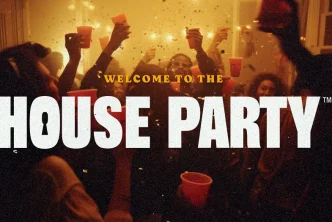In the worlds of TV, film, and writing, there are certain genres that resonate more deeply with gatherings of people than others. In between, Derailment Drama emerges as an interesting and fascinating genre, one that draws viewers and readers into a spirited rollercoaster of tension, turmoil, and change. The greatness of Derailment Dramas lies in their ability to take a recognizable situation—be it a relationship, a career, or a person’s personal journey—and of course toss it around, driving the characters to adjust, evolve, or actually succumb to the situation as it comes. What makes these stories so compelling is their exploration of human vulnerability, strength, and the persistent impact of sudden life changes.
A Derailment Drama doesn’t offer plot twists intended to surprise—it dives deeper, looking at the aftermath of life-changing events and how they reshape the characters, their connections, and their destinies. These stories aren’t primarily about something going wrong—they’re around the response, the toll it takes, and the changes that follow. The most effective Derailment Dramas combine complex plotlines with deep character turns, driving exceptional accounts that linger long after the story ends.
This article investigates the fascinating world of Derailment Dramas, diving into the features that make them so compelling. From their perplexing stories to the exceptional characters that occupy them, Derailment Drama has earned its place as one of the most beloved and energetic genres.
What Makes a Derailment Drama?
At its core, a Derailment Drama is a story that revolves around a significant disruption in the direction of a character’s life. The term “crash” refers to an unexpected, often negative, disruption of an arranged or expected course. In terms of dramatization, this disturbance serves as the central driving force behind the plot. Derailment Drama’s characters are routinely forced to confront overwhelming obstacles, make troubling choices, and explore complex emotional scenarios in response to these obstacles.
Classes vary. It’s not so much the plot twists or sudden events—it’s so much how these events reshape the characters, challenge their convictions, and make them rethink who they are. These stories often center on the essential minutes that lead a character in a direction, making their journey one of self-discovery or self-destruction. Disturbances in Derailment Dramas usually change the lives of the characters involved, and often these changes lead to significant emotional and psychological consequences.
Derailment Dramas can take many forms. These can revolve around individual breakdowns, such as a relationship breaking up, or a person losing their job or career. Then again, they may investigate the larger social, political, or natural changes that prevent people or groups from going against unused and challenging substances. In any given situation, Derailment Dramas is characterized by an investigation of the human power to cope with sudden, spontaneous and regularly disappearing changes.
Complex Plotlines in Derailment Dramas
Plot structure in Derailment Dramas is regularly non-linear, filled with passionate complications, and characterized by numerous layers of narration. These shows regularly mirror real-life comedy, with characters thrown into troubling situations that they have to deal with, where they struggle with the consequences of their actions, utterances or events beyond their control. The story is rarely straightforward, and the account can unfold in surprising ways, regularly revealing the effects of a choice, an activity, or a moment of misfortune.
1. Unexpected disasters and their effects
A common highlight of Derailment Drama is the unexpected disaster or near disaster, which serves as the inciting event for the story. This occasion can be a single sensational event or a series of events that disintegrate the characters’ universes. Catastrophe is regularly sudden, shocks the characters and assemblages of people, and its full impact unfolds over time, creating an atmosphere of pressure and suspense.
An example of this can be found in the film Progressive Street, where the seemingly perfect lives of Straight to the Point and April Wheeler are shattered when they realize that their rural presence is far from the perfection they believed it to be. The film’s plot does not center on a single, emotional occasion, but rather on their marriage and the mediated, successive unfolding of their dreams. As the couple faces despair, they are forced to confront their claim to personal failure, leading to irreversible consequences.
2. Results of choice
In Derailment Dramas, characters’ choices don’t matter all at once The class highlights how decisions – whether big or small – can have far-reaching consequences. The characters’ choices in the wake of a troubling event end a driving drive to account, pushing the plot in startling bearings and uncovering untapped dimensions of the characters’ personalities.
One of its most famous cases in cutting edge TV is Breaking Aful. Walter White, a high school chemistry major, first turns to cooking methamphetamine for his family when he is diagnosed with terminal cancer. While this choice may seem right at first, it creates an array of increasingly dangerous scenarios. Over the course of the series, Walter’s protagonist wanders into merciless crime with great eagerness, and his immersion in the sordid exchange depressingly changes his life. The format illustrates how one choice can start a chain reaction that crashes a person’s life, changing their sense of character, moral quality, and relationships until the end of time.
3. Wander in chaos
As the plot of a Derailment Drama unfolds, chaos regularly ensues. This is where the story departs from the routine account that takes after an unremarkable or straightforward movement. In Derailment Dramas, the characters are often caught up in chaos, where things fall apart in ways they never expected. This plummet can be both dramatic and metaphorical, as the characters’ emotional states collapse, their connections break down, and their worlds gradually fragment.
The 2006 film The Interest of Happiness, starring Will Smith, is a great case of this type of Derailment Drama. The protagonist, Chris Gardner, finds himself spiraling into financial ruin and anxiety after arranging a terrible breakup. Despite his circumstances, Chris never gives up, and his steadfast determination to turn his life around makes for a powerful investigation of versatility in the face of overwhelming odds. His journey to victory is tested by battles, quits and endless mishaps, coming full circle within a minute of victory against the odds.
Unforgettable Character Arcs in Derailment Drama
The most interesting angle of Derailment Dramas is the regular bending of characters. These circular pieces are habitually complex and layered, with characters moving in response to events and choices that disrupt their lives. These stories are about transformation—how the characters are reshaped by the dramatic changes in their world and how they come to terms with the consequences of their actions.
1. From Innocence to Experience
A notable aspect of numerous Derailment Dramas is the shift from innocent to involved. These journeys often include characters who start out with clear moral sentiments and an idealistic outlook on life, but are forced to stand up against cruel substances that challenge their beliefs. The journey of engagement is often a painful one, as the character must learn painful truths and come to terms with the world around them.
In The Adoptive Parent, Michael Corleone’s transformation is notable for this move. Michael starts out as a young, hopeful man isolated from his family’s criminal activities. In any case, after assaulting his father, Michael is thrust into the black market of organized crime, where he constantly hopes to control the family business. Her circular segment is about how a person can be changed by circumstances past their control and how the choices they make can become something they never imagined.
2. Recovery and depression
Much of Derailment Drama revolves around the concept of recovery, as characters try to recover from past problems, make amends for wrongs, or rebuild their shattered lives. Regardless, not all of Derailment Dramas characters discover redemption—some lose hope, unable to recover from what they’ve done wrong. These distinguishing arcs—one restoration, the other decay—are necessarily ritualistic.
In the case of Walter White from Breaking Terrible, his descent into moral decadence stands as a capable portrayal of a character who does not look to recover, but may or may not settle further into his criminal persona. Walter’s journey may be one of self-destruction or redemption, as his moral compass deteriorates over the course of the series.
On the other hand, in movies like The Shawshank Recovery, Andy Dufresne’s story is one of recovery, as he rises above the treachery of the prison structure and oversees his escape from the harsh forces around him. His turn is a moving affirmation of the malleability of the human spirit, and indeed the control of faith in the most complex situations.
3. Anti-Hero and Moral Ambiguity
An unequivocal highlight of Derailment Dramas is the preponderance of anti-heroes who operate in a moral gray area. These heroes are clearly neither great nor demonic; They are imperfect and complex, often making choices that may be considered unreliable or morally ambiguous. This moral complexity adds depth to their character arcs and makes them compelling to watch.
Tony Soprano, the hero of The Sopranos, is a famous case of the anti-hero. As a mob boss, he is involved in various criminal practices, but is portrayed as a doting father and husband, struggling with discomfort and the weight of his lifestyle. Tony’s character arc is characterized by his inner struggle, and his personal connections to reconcile his criminal sphere shape the passionate core of his battle series.
Why Do Derailment Dramas Captivate Audiences?
Derailment Dramas appeal lies in their raw, unvarnished portrayal of the playfulness of life. These stories speak to our deepest fears and anxieties—that everything we’ve created can be undone by a single occasion or choice. Derailment Dramas taps into our collective understanding of how subtle our presence can be, and how little control we actually have over the title our lives can take.
Moreover, Derailment Drama resonates with groups of viewers because they reflect the internal battles we all face on a regular basis. Whether it’s dealing with depression, grappling with the consequences of our actions, or trying to change after misfortune, the themes of this drama are wide-ranging. The passionate complexity of Derailment Dramas—combined with the real, human parts of the characters’ journeys—creates a strong passionate connection between the gathering of people and the story.
Conclusion
Derailment Dramas is a unique and effective selection, combining perplexing plotlines with exceptional character curves to create a frankly brilliant story, in terms of sophisticated narrative. These stories thrive on the erratic nature of life, investigating how sudden disruptions can change the course of a person’s life and how they react to the challenges they face. The most compelling Derailment Dramas are the ones that dive deep into their characters not just the impact of life’s challenges but their emotional and mental changes. From unexpected catastrophes to spiraling chaos, these stories fascinate gatherings of people by uncovering the complex, regularly harrowing, nature of human existence.
Read More latest Posts
 Written by
John Smith
Written by
John Smith





